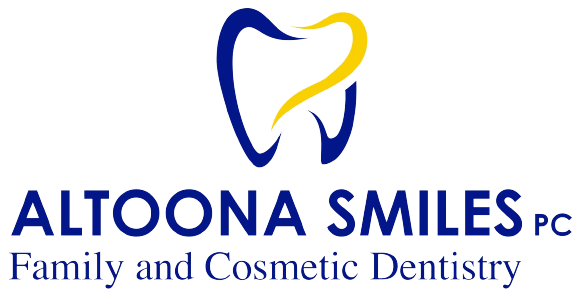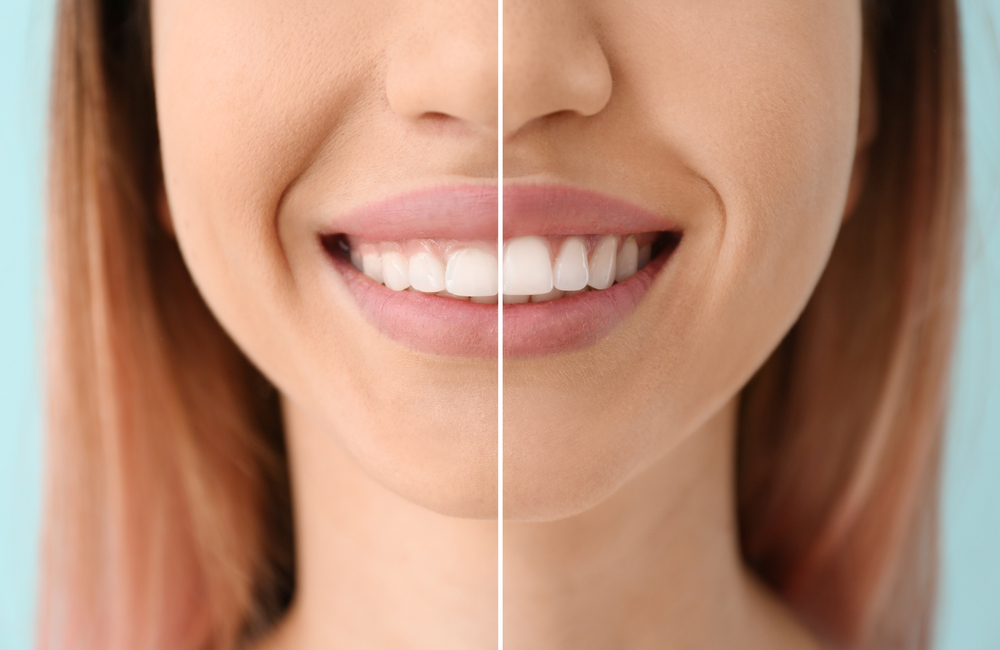Dental health is not solely maintained by regular visits to the dentist or diligent oral hygiene; it is also significantly influenced by the foods we consume. Every bite and sip can impact the integrity and longevity of our teeth and gums. In this blog, we’ll dive into how diet directly affects oral health, highlighting the good, the bad, and the nutrient essentials. Join us as we uncover dietary habits that are crucial for maintaining optimal oral health and preventing dental diseases.
In This Blog:
- The Relationship Between Diet and Oral Health
- Foods That Harm Oral Health
- Foods That Promote Oral Health
- Key Nutrients for Oral Health
- Practical Dietary Tips for Healthy Teeth
- Special Dietary Considerations
The Relationship Between Diet and Oral Health
The diet we consume is a fundamental component of our dental care regimen, influencing not only our general health but also the well-being of our teeth and gums. This section explores how the foods we eat can directly impact oral health by either fortifying or undermining the integrity of our oral tissues.
Nutrients and Oral Tissues
The nutrients from our diet play a critical role in maintaining the health of our oral tissues. They contribute to the structural integrity of teeth and aid in the healing and strengthening of gum tissues. Essential minerals like calcium and phosphorus are vital for tooth enamel, providing the necessary hardness and resilience against daily wear. Similarly, vitamins such as Vitamin C are crucial for gum health, aiding in maintaining the strength and integrity of the gum tissue.
Balance of Harmful and Beneficial Foods
Our dietary choices can have dual effects on our oral health. While some foods are beneficial, others can pose serious threats. For example, excessive consumption of sugary and acidic foods can lead to tooth decay and enamel erosion, respectively. On the other hand, eating a diet rich in fruits, vegetables, and dairy products can help counteract these adverse effects. These foods not only provide the nutrients needed for oral health but also help in mechanical cleaning of the teeth and neutralizing harmful acids.
Understanding how our diet affects our oral health is crucial for making informed choices about what we eat and drink. This knowledge empowers us to minimize risks and enhance our oral health through our dietary habits. The insights gained here set the stage for a deeper look into specific foods that can harm or benefit our oral health in the subsequent sections.
Foods That Harm Oral Health
Understanding the detrimental impact certain foods can have on our teeth and gums is essential for maintaining a healthy mouth. This section focuses on identifying those foods that pose the most significant risks, explaining their effects, and providing guidance on how to minimize their damage.
Here’s a basic table showing foods that harm oral health and their effects:
| Food Type | Examples | How They Harm Oral Health |
| Sugary Foods and Beverages | Candies, desserts, sugary drinks | Promote bacterial growth leading to acid production and tooth decay |
| Acidic Foods and Drinks | Citrus fruits, tomatoes, carbonated drinks | Erode tooth enamel, increasing sensitivity and risk of decay |
| Sticky and Hard Foods | Dried fruits, chewy candies, ice, hard candies | Prolong acid contact with teeth or cause physical damage to teeth |
This table highlights the key types of foods that are detrimental to oral health, providing examples and explaining their negative effects.

Sugary Foods and Beverages
Sugary items are among the primary antagonists in oral health. They fuel the bacteria in dental plaque that produce harmful acids, attacking tooth enamel and leading to cavities. Regular consumption of candies, desserts, and sugary drinks can escalate these acid attacks, increasing the risk of tooth decay significantly.
Acidic Foods and Drinks
Acidic substances can be just as harmful as sugar. Foods and beverages like citrus fruits, tomatoes, and carbonated drinks have high acid levels that can erode tooth enamel, making teeth more susceptible to decay. Over time, this erosion can lead to increased sensitivity and weakened teeth, compounding oral health challenges.
Sticky and Hard Foods
Certain textures in foods can also pose risks. Sticky foods like dried fruits or chewy candies adhere to teeth longer, prolonging acid attacks. Hard foods, such as ice or hard candies, can cause physical damage to teeth, including chips or fractures, particularly if teeth have been weakened by erosion or decay.
By recognizing and understanding the foods that can damage our oral health, we can make more informed dietary choices that reduce exposure to these risks. Transitioning from harmful to beneficial foods, as explored next, is key to reinforcing our dental health regimen.
Foods That Promote Oral Health
Just as some foods are detrimental to oral health, others play a crucial role in supporting and enhancing the health of our teeth and gums. This section highlights those beneficial foods, explaining how they contribute to a healthier mouth.
Here’s a basic table showing foods that promote oral health and their beneficial effects:
| Food Type | Examples | How They Promote Oral Health |
| Dairy Products | Cheese, milk, yogurt | Provide calcium and phosphorus to remineralize tooth enamel and prevent decay; stimulate saliva production |
| Crunchy Fruits and Vegetables | Apples, carrots, celery | Act as natural toothbrushes, scrubbing away plaque and stimulating saliva production |
| Foods Rich in Antioxidants | Berries, nuts, leafy greens | Support gum health by reducing inflammation and strengthening immune response |
This table provides an overview of foods that are beneficial for oral health, offering examples of each type and detailing how they contribute to healthier teeth and gums.
Dairy Products
Dairy items like cheese, milk, and yogurt are excellent for teeth due to their high calcium and phosphorus content. These minerals are essential for remineralizing tooth enamel and preventing decay. Additionally, dairy products encourage saliva production, which helps neutralize acids and cleanse the teeth and gums.
Crunchy Fruits and Vegetables
Eating crunchy produce such as apples, carrots, and celery can help clean teeth naturally. The fibrous textures act like natural toothbrushes, scrubbing away plaque and food particles while stimulating saliva production to further cleanse the mouth and dilute sugars.
Foods Rich in Antioxidants
Antioxidants play a significant role in maintaining healthy gums by combating inflammation and supporting the immune system. Foods rich in antioxidants, such as berries, nuts, and leafy greens, can help protect against gum disease by improving gum health and reducing inflammation.
Incorporating these beneficial foods into our daily diet not only supports oral health but also contributes to our overall nutritional well-being. With this foundation, we can build a diet that enhances dental health, as further discussed in the subsequent sections regarding specific nutrients essential for a healthy mouth.
Key Nutrients for Oral Health
There are several nutrients that can help promote oral health. Here’s a list of some key nutrients that are crucial for maintaining optimal oral health, along with descriptions of their roles:
Calcium:
This mineral is essential for developing and maintaining strong teeth and bones. It helps to harden the enamel, the protective outer layer of the teeth, and plays a role in making the jaw bones healthy and strong to hold the teeth in place. Dairy products, leafy greens, and fortified foods are good sources of calcium.
Vitamin D:

Often referred to as the “sunshine vitamin” because it’s produced in the skin in response to sunlight exposure, Vitamin D helps the body absorb calcium more effectively. This makes it critical for maintaining the health of teeth and bones. Vitamin D deficiency can lead to underdeveloped teeth, gum disease, and tooth decay. It can be found in fatty fish, egg yolks, and fortified foods like milk and cereal.
Phosphorus:
This mineral works in conjunction with calcium to protect and rebuild tooth enamel. Foods high in protein, such as meats, milk, and nuts, are generally good sources of phosphorus.
Vitamin A:
This vitamin is vital for maintaining the mucous membranes in the mouth. It helps keep tissues healthy, prevents dry mouth, and speeds up the healing process. Vitamin A can be found in foods like carrots, sweet potatoes, and leafy greens.
Vitamin C:
Important for gum health, Vitamin C helps to maintain and repair gum tissue, prevents gum bleeding, and helps in keeping the teeth firmly fixed in the gum. This vitamin is crucial for preventing gum disease and can be found in citrus fruits, strawberries, peppers, and broccoli.
Potassium:
Similar to Vitamin D, potassium improves bone mineral density. It also works with magnesium to prevent blood from becoming too acidic, which can leach calcium from your bones and teeth. Potatoes, bananas, avocados, and prunes are good sources of potassium.
Vitamin K:
This nutrient plays a key role in bone mineralization and blood clotting. Healthy clotting helps prevent diseases that cause bleeding in the gums. Vitamin K can be found in leafy greens, such as kale and spinach.
Magnesium:
Essential for the formation of bone and teeth, magnesium works closely with calcium to ensure the enamel of the teeth is strong and resilient. Magnesium-rich foods include nuts, seeds, whole grains, and leafy green vegetables.
Each of these nutrients contributes to oral health in specific ways, supporting the structures of the teeth and gums and helping prevent oral diseases. Incorporating a balanced diet rich in these nutrients is a foundational step towards maintaining a healthy mouth.
Practical Dietary Tips for Healthy Teeth
Adopting a diet that supports oral health involves more than just choosing the right foods—it also includes incorporating these choices into daily habits effectively. Here, we offer practical advice on how to enhance your dietary routine to boost your dental health.
Balanced Diet Recommendations
Ensure your diet includes a variety of nutrient-rich foods to support oral health. This means integrating a balance of vegetables, fruits, lean proteins, whole grains, and dairy products into your meals.
Managing Sugar Intake
Reducing sugar intake is crucial for preventing tooth decay. Be vigilant about hidden sugars in processed foods and choose healthier snack options. Consider consuming sugary foods and beverages during main meals rather than as standalone snacks to take advantage of increased saliva production, which helps neutralize acids and rinse away food particles.

Snacking Habits
Limit frequent snacking, which can increase the risk of tooth decay, especially if the snacks are sugary or acidic. Opt for nutritious snacks that are low in sugars and high in fiber, such as raw vegetables or nuts, which promote saliva flow and naturally clean the teeth.
Importance of Hydration
Drinking plenty of water throughout the day is essential for oral health. Water helps to wash away food particles and bacteria, aids in maintaining saliva flow, and dilutes acids that can harm tooth enamel.
Meal Timing and Frequency
Eating meals at regular intervals helps to regulate saliva production, which is vital for oral health. Saliva not only helps digest food but also neutralizes mouth acids and helps repair early tooth decay.
Special Dietary Considerations
Everyone’s dietary needs can vary, especially when considering dental health alongside other medical or physical conditions. Here’s a table organizing the special dietary considerations for different conditions affecting oral health based on the detailed information provided:
| Condition | Dietary Adjustments | Additional Recommendations |
| Dental Sensitivities | Avoid extremely hot, cold, or acidic foods. Opt for softer foods. | Choose foods that are easy to chew and less likely to irritate. |
| Orthodontic Treatments | Avoid sticky and hard foods. Opt for soft and easy-to-chew foods. | Cut foods into smaller pieces to avoid damage and trapping of food particles. |
| Nutritional Needs for Children | Ensure a diet rich in calcium, phosphorus, and fluoride. | Focus on nutrient-dense foods that support the development of strong teeth and gums. |
| Nutritional Needs for Elderly | Opt for softer foods, maintain hydration. | Adapt food textures and maintain fluid intake to combat dry mouth. |
| Gum Disease | Increase intake of vitamins and minerals that support gum health, such as Vitamin C and calcium. | Avoid smoking and reduce alcohol intake. |
| Diabetes and Oral Health | Carefully manage carbohydrate intake to prevent spikes in blood sugar, which can worsen gum disease. | Regularly consult healthcare providers to tailor dietary strategies. |
Adapting your diet based on these special considerations can greatly enhance your oral health and overall well-being, ensuring that your dietary habits support not just your dental care but also your general health goals.
Conclusion
In conclusion, the profound connection between our diet and oral health cannot be overstated. Every choice we make about what to eat directly influences the health of our teeth and gums. By embracing a balanced diet rich in essential nutrients and low in harmful substances, we can significantly enhance our oral wellness. Managing sugar intake, choosing smart snacks, and staying hydrated are all practical steps that reinforce this effort. Moreover, tailoring our diet to accommodate specific dental conditions or life stages further ensures that our dietary habits support both our dental and overall health. Remember, a proactive approach to diet not only keeps your smile bright but also contributes to a healthier life. Let’s make every meal a step towards better oral health.







